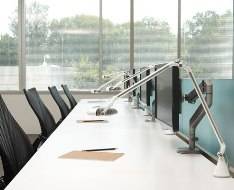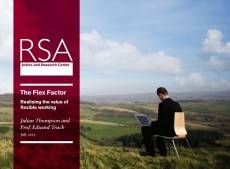July 29, 2013
Hospitality giant receives second LEED certificate for sustainable HQ
Wyndham Worldwide, one of the world’s largest hospitality companies, which counts the Travelodge and Ramada chains amongst its brands has received a second silver certification from the U.S. Green Building Council’s Leadership in Energy and Environmental Design (LEED) program for its New Jersey-based headquarters. One of the green initiatives was the introduction of a sustainable purchasing policy that encourages the purchase of ongoing items such as lamps, electronic goods and furniture, to be environmentally friendly, conserve natural resources, minimize waste and reduce toxicity. (more…)























August 1, 2013
Predicting the future of the office means looking at what is happening now
by Charles Marks • Comment, Facilities management, Furniture, Workplace, Workplace design
(more…)